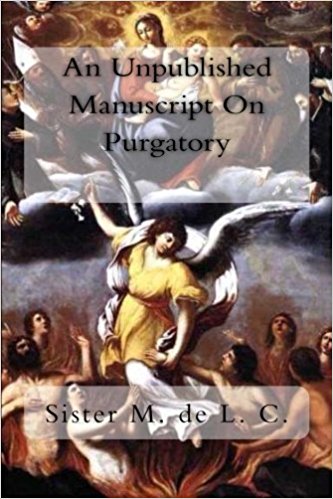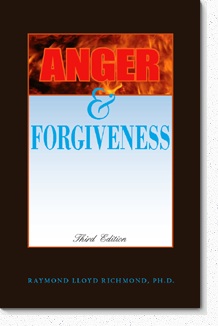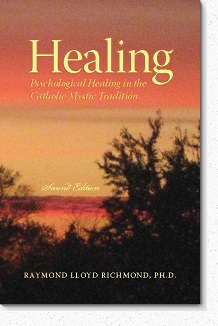|
|
|

I was
doing an “emotional healing exercise” in my [self-help spiritual
healing workbook] today for the first time. . . . The first step was to
write a letter and say “I’m angry” to the person who hurt
me, write the reasons why, write about my fears, write about how my life
has become because of my experience with this person, and write about my
sad feelings. The second step was to write as if the person who hurt me was
completely healed and was now in heaven standing next to Jesus. I had to
write a letter of apology as if I were this person speaking to myself
with comforting and loving words. And even though I had to imagine
this person as being completely healed, as being pure, as having no more
sin, and as being filled with God’s love, I couldn’t help thinking,
“He doesn’t mean what he said,” even though the letter was
all my imagination. The next step was to write a letter of apology to this
person, but I couldn’t bring myself to apologize no matter how many
times I re-read that person’s letter of apology (that I wrote) to myself.
I felt stubborn and proud, so I stopped. . . . I seem to be having the
. . . problem of being unable to forgive and to trust.
 |
 his issue about forgiveness with
which you are struggling actually involves two separate concepts. his issue about forgiveness with
which you are struggling actually involves two separate concepts.
Purified in
Heaven
The first concept is touched
upon when you are asked the hypothetical question, “If you met your
worst enemy in heaven, could you forgive him?”
Now, most people, in considering
their answer, forget the following basic concept: any soul who goes to
heaven must, by necessity, have been purified in Purgatory, such that in Heaven the
soul’s love is absolutely pure. There can be no deception here.
It’s not like in a court of law where a criminal can fool a judge with
false contrition just to escape punishment. Nor is it like an irresponsible
father asking his children to forgive him when really, in his heart, he has
no intention of changing.
God cannot be fooled.
At the time of its judgment,
the soul is confronted with the light of
absolute truth; [1] any impurity
will send the soul into perfectly just punishment, either in
hell or in Purgatory, depending
on whether or not sins have been repented. In Purgatory,
the purification is absolute, and only after such purification can the soul
stand in the presence of God’s pure love in
heaven.
Therefore, it would not be possible
for you to meet your enemy in heaven unless both of you were in a state
of pure love; consequently, in heaven, there would be no doubt about
the other person’s contrition; therefore, trust
would not be a problem. Furthermore, in heaven forgiveness would not even be a
question. Let’s see why.
Forgiveness and
Reconciliation
The second concept mentioned above
concerns the difference between forgiveness and reconciliation.
Forgiveness
means that you relinquish all hatred
for your enemy. That is, when you are in the place of forgiveness, all desire
for for harm to come to your enemy is relinquished and therefore all
desire for revenge is relinquished. In essence, you achieve
forgiveness when you take the desire for justice out of your own hands and
place justice into God’s hands where it truly belongs. Note that in
doing this you are trusting in God’s perfect
justice, knowing that your enemy will pay for his or her
sins as God sees fit. If your enemy dies unrepentant,
he will pay for his sins in hell; if he dies repentant, he will pay for his
sins in Purgatory.
Therefore, any soul you meet in
Heaven would have already experienced God’s justice in Purgatory. This explains
why forgiveness would not be an issue if you met even your worst enemy in Heaven;
that is, by the time both of you get to Heaven there is nothing more for either
of you to pay for.
Let us be careful
here, though, to understand a fundamental point about forgiveness: acknowledging
and feeling the emotional hurt that you have suffered is a prerequisite to
forgiveness. Hiding your feelings only drives them into the unconscious
where they fester in unconscious anger, making
forgiveness impossible.
Therefore, only
when you have felt your pain, are honest with yourself about it, and have
understood it psychologically and spiritually, can you make the conscious
decision—that is, as an act of will—to lay down your weapons of
revenge and then trust in God’s
justice.
Reconciliation
applies to the time when both you and your enemy are still alive. Reconciliation
adds something extra to your forgiveness; that is, after you have forgiven
your enemy, if your enemy
apologizes[2]
to you and makes penance for the offense, then you will be reconciled to
each other. Thus, your forgiveness plus your enemy’s repentance
makes it possible for a relationship of trust to be restored between the
two of you.
Note here that even if your enemy
does not repent, thus preventing any reconciliation, you can still forgive
him, and you can still pray for his eventual
repentance before he dies.
Moreover, if he has already died,
for the sake of charity you can assume that his soul is in Purgatory, and
you can pray for his soul to assist his purgation; if he did not
die in a state of repentance, and if he therefore is in hell rather than
Purgatory, your prayers will be applied to another soul in Purgatory who needs
them. Prayer is never wasted; such is God’s mercy.
|
When forgiveness
is simply an ethical decision, rather than a mystical experience flowing from
love for God, then it is like salt that has lost its flavor. |
|
Summary
Altogether, then, that exercise
you have been trying to complete misses the point.
Perhaps, if you rethink things along the lines that I have just explained,
you might grasp the real spiritual issue in front of
you.
Furthermore, you will then be
able to understand the grievous wound that requires your repentance along
with your apology to your enemy: the
fact that until now you have failed to pray for his conversion but instead were
preoccupied with hating him. [3]

Notes
1. See the books Hungry Souls by Gerard
J.M. van den Aardweg (Saint Benedict Press, LLC and TAN Books, 2009) and An
Unpublished Manuscript on Purgatory by Sister M. de L. C. (CreateSpace
Independent Publishing Platform, 2012); each book recounts stories of supernatural
visits, messages, and warnings from Purgatory and includes a description of the
judgment process as experienced by one soul.
2. That is, if he actually apologizes to
you; your imagining his apology does not count for anything in regard to
the reconciliation process.
3. In this regard, consider the story of
Maria Goretti.
Recommended
Reading
 |
 |
Hungry Souls by Gerard
J.M. van den Aardweg recounts stories of
supernatural visits, messages, and warnings from Purgatory. These are trustworthy,
Church-verified accounts of earthly visitations from the dead in Purgatory. Accompanying
these accounts are images from the "Museum of Purgatory" in Rome, which contains relics
of encounters with the Holy Souls, including numerous evidences of hand prints burned
into clothing and books; burn marks that cannot be explained by natural means or duplicated
by artificial ones.
TAN Books and Publishers |
|
 |
 |
An Unpublished Manuscript on
Purgatory by Sister M. de L. C. recounts the mysterious relation continued for several
years between the living nun and a departed religious suffering in Purgatory.
“When the soul leaves the body it is as if it were lost in or, if I may say
so, surrounded by God. It finds itself in such a bewildering light that in the twinkling of an
eye it sees its whole life spread out, and at this sight, it sees what it deserves, and this
same light pronounces its sentence. If the soul deserves to go to Purgatory, it is so crushed
by the weight of the faults that still remain to be blotted out, that it hurls itself into
Purgatory.”
“In the great Purgatory there are several stages. In the
lowest and most painful, like a temporary hell, are the sinners who have committed terrible
crimes during life. For such souls, Purgatory is terrible. Next to these come the souls, who
though they did not commit great crimes like the others, were indifferent to God. They are in
Purgatory for the long years of indifference. They suffer unheard of pains and are abandoned
either without prayers or if they are said for them, they are not allowed to profit by them.
In the second Purgatory are the souls of those who died with venial sins not fully expiated
before death, or with mortal sins that have been forgiven but for which they have not made
entire satisfaction to the Divine Justice. Lastly, there is the Purgatory of desire which is
called the Threshold. Very few escape this. To avoid it altogether, one must ardently desire
Heaven and the vision of God. That is rare, rarer than people think, because even pious people
are afraid of God and have not, therefore, a sufficiently strong desire of going to
Heaven.”
Order
at Amazon.com |
|
 |
 |
Anger and Forgiveness by Raymond Lloyd Richmond, Ph.D. explains how most
of us carry more anger in our hearts than we are capable of admitting even
to ourselves. As a result, we often feel stuck in lives of unfulfilled potential,
unending resentments, and physical illness. In this book, Dr. Richmond explains
the deep psychological implications of anger and forgiveness and shows how
to turn the emotional wounds of daily life into psychological
growth.
Ordering
Information |
|
 |
 |
Healing by Raymond Lloyd Richmond, Ph.D. explains how psychological
defenses help to protect us from emotional injury. But if you cling to the
defense mechanisms that were created in your childhood and carry them on
into adulthood—as most everyone does unconsciously—your quest for spiritual
healing will be thwarted by overwhelming resentments and conflicts.
Still, God has been trying to show you that there is more to life than resentment and
conflict, something so beautiful and desirable that only one thing can resist its pull:
hate.
So now, and in every moment until you die, you will have a profound choice between your
enslavement to old defenses and the beauty of God. That decision has to come from you.
You will go where you desire.
Ordering
Information |
|
|







